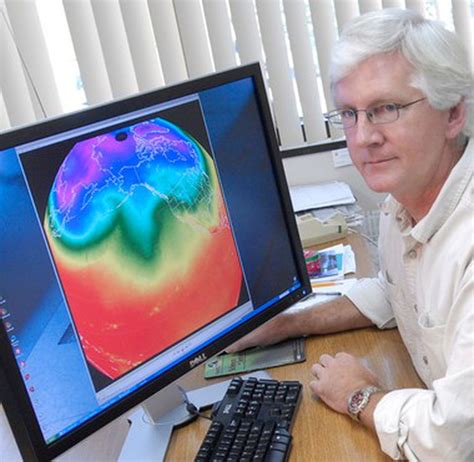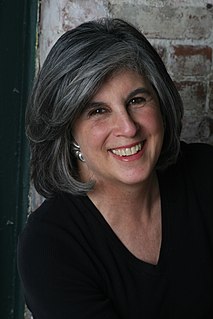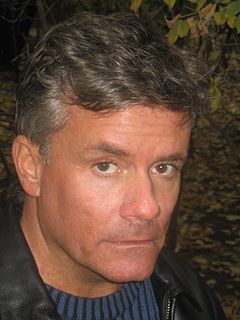A Quote by Carl Sagan
In science it often happens that scientists say, 'You know that's a really good argument; my position is mistaken,' and then they would actually change their minds and you never hear that old view from them again. They really do it. It doesn't happen as often as it should, because scientists are human and change is sometimes painful. But it happens every day. I cannot recall the last time something like that happened in politics or religion.
Related Quotes
Do I think that people should in the best of all possible worlds have to go to jail for wanting the US government to pay attention to the warnings of scientists about climate change? Not really. I mean, in a rational world, if all the scientists said, "The worst thing that ever happened is about to happen and here's what you should do to stop it," you would expect any rational system to say, "Oh, sure, OK, let's do something about it." But that's not the world we live in. In the world we live in, you do need people willing to stand up, fight, march and sometimes go to jail.
Politicians and some of the scientists like to say that there's a consensus now on global warming or the science has been settled, but you have to ask them, what is there a consensus on? Because it really makes a difference. What are you talking about? The only consensus I`m aware of is that it's warmed in the last century. They completely ignore the fact that there's this thing called the Oregon petition that was signed by 19,000 professionals and scientists who don't agree with the idea that we are causing climate change.
My two older brothers are both molecular biologists and neuroscientists, and I feel like representing them accurately is never done in movies, and I really wanted to at least capture the spirit of a Ph.D. student whose goal and aspiration is to increase the sum total of human knowledge. That is noble. That was really, really important, to capture the three-dimensionality of scientists. Scientists fall in love, scientists have the greatest sense of humor, scientists are passionate.
People tend to set themselves up in patterns; something happens, it hurts them, then something similar happens, and - it's happened again! It seems much bigger then, and they get worried and go through life looking for that thing, and because they're so concerned and looking for it, when anything that happens resembles that thing, they're sure it's happening again. So sometimes people think things are repeating even when they're not.
People with the best intentions will often give you advice on why you shouldn’t take a risk because of what could happen. While some of what they say may be true, you should never allow them to get their negative anchors into your mind because, like them, you too will begin to sink. Next time this happens, throw them a life-line, and ask them what is good about their situation.
The history of science, like the history of all human ideas, is a history of irresponsible dreams, of obstinacy, and of error. But science is one of the very few human activities-perhaps the only one-in which errors are systematically criticized and fairly often, in time, corrected. This is why we can say that, in science, we often learn from our mistakes, and why we can speak clearly and sensibly about making progress there. In most other fields of human endeavour there is change, but rarely progress ... And in most fields we do not even know how to evaluate change.
I feel like I have more experience with publishing humor than pretty much any editor I'm going to be dealing with so sometimes I'll get a little bit nuts if I write something I know is good a certain way, and some editor because of some restriction he has and wants to change it that I know is going to make it less funny that'll piss me off and then I'm inclined to go, "Well, hey I've been doing this a long time, maybe you should..." That doesn't happen that often, but I'm more likely to say that now than I would have been a long time ago. Because dammit, I'm infallible!
With a novel, you have the reader with you a lot longer, and you owe him a lot more. Obviously you have to have a plot - I say "obviously," although I think a lot of fiction doesn't, and nothing seems to happen. But to me, there should be something that happens, and it should be at least vaguely plausible. And because the readers are going to be with these characters for a long time, you have to get to know them and like them and want to know what happens to them.
To me, every episode is like a song, and every season is like an album. There's that part of the day when you first get the idea and you say, "This could be really funny." And you sit down and you write it. There's just something that happens there that doesn't happen when you really give it a lot of time beforehand.
We all know of people who thought they could to it (whatever “it” is) tomorrow. We have all procrastinated on such a way, and often to our personal regret. It happens time and again, putting off things that we convince ourselves might be better, more meaningful, more appropriate for another time. So often that better time either never comes or really isn’t better or more appropriate after all. And then, sadly, the window of opportunity -to do something great- closes.
Philosophers often think all scientists must be scientific realists. If you ask a simple question like "Are electrons real?" the answer will be "Yes". But if your questions are less superficial, for example whether some well-known scientist was a good scientist. Then, they had insisted that only empirical criteria matter and that they actually did not believe in the reality of sub-atomic entities. Ask "If that turned out to be true, would you still say they were good scientists?" The answer would reveal something about how they themselves understood what it is to be a scientist.
Religion should be subject to commonsense appraisal and rational review, as openly discussible as, say, politics, art and the weather. The First Amendment, we should recall, forbids Congress both from establishing laws designating a state religion and from abridging freedom of speech. There is no reason why we should shy away from speaking freely about religion, no reason why it should be thought impolite to debate it, especially when, as so often happens, religious folk bring it up on their own and try to impose it on others.



































